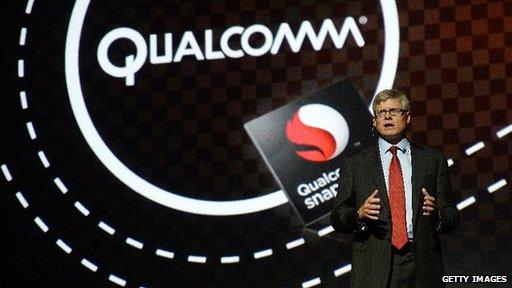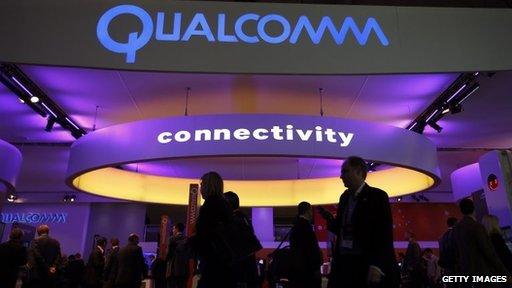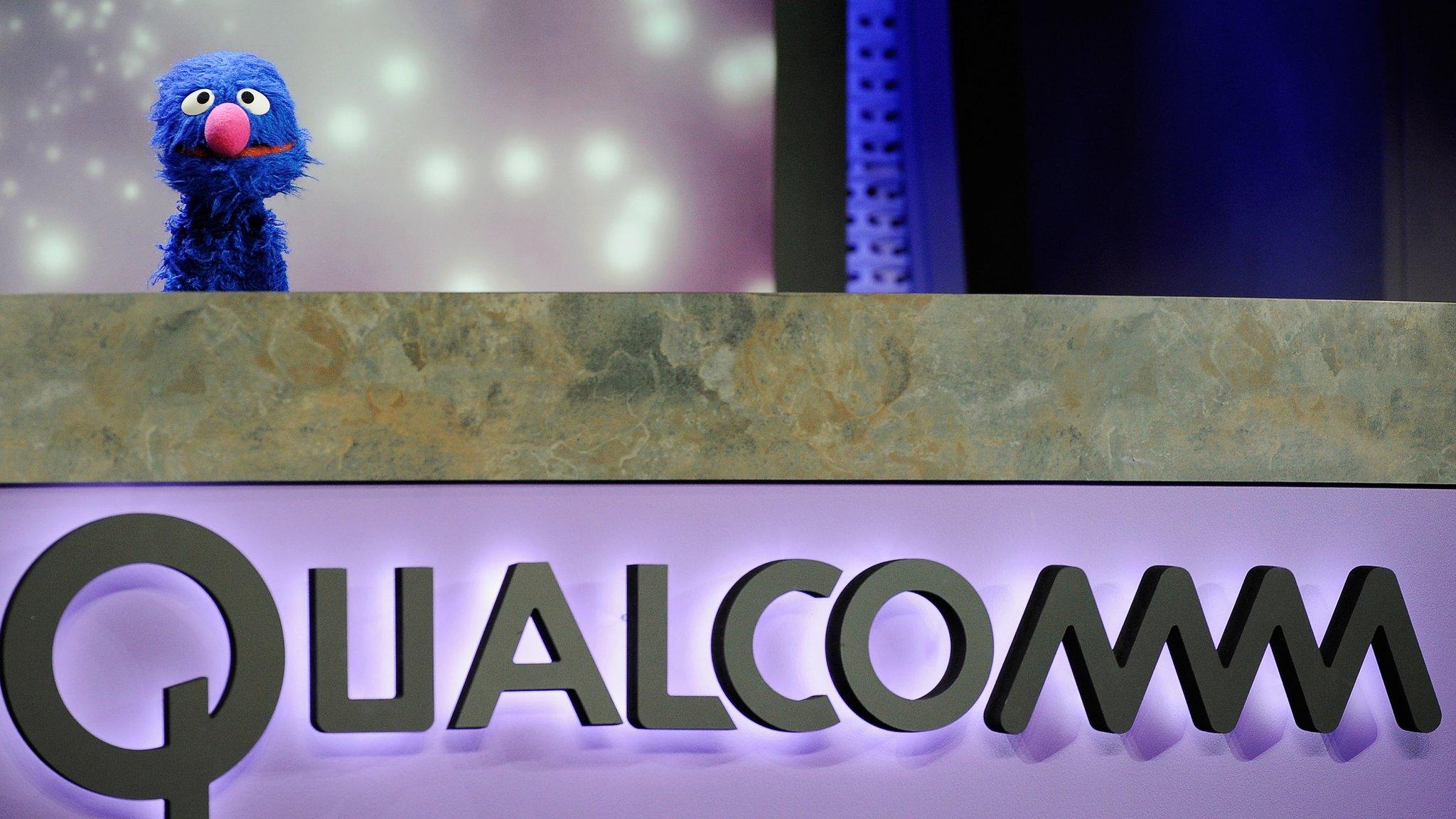Qualcomm accuses Chinese firms of misrepresenting sales
- Published

Although Qualcomm is best known for its chips, most of its profits come from its patents
Smartphone chip giant Qualcomm is facing several setbacks in China, causing its share price to fall.
The US firm has revealed that it believes several Chinese manufacturers are misrepresenting the number of devices they have made to reduce the patent royalty fees they owe.
In addition, a state-run newspaper has reported that a Chinese regulator has decided the company's patents have given it a monopoly position.
That could lead to a huge fine.
Qualcomm has been under investigation by the National Development and Reform Commission (NDRC) over claims that it had overcharged for the right to use its standard-essential patents and had abused its market position.
Standard-essential patents refer to innovations that are critical to a specification adopted as an industry-shared technology.
Qualcomm owns many inventions that lie at the heart of 3G, 4G and other wireless data technologies.
As a result, device manufacturers must pay it a fee to ensure their products can communicate with others devices even if they do not include any of the various chips that Qualcomm manufactures itself.
Potential penalty
The NDRC said in February that one of the complaints it was looking into was a claim that Qualcomm was charging higher prices in China than elsewhere.
If it finds the company guilty, it can fine it up to 10% of its local revenue for the past financial year.

Qualcomm hopes to benefit from the rollout of 4G networks in China
Nearly half of Qualcomm's sales came from China last year, meaning its penalty could total $1.2bn (£723m).
The state-run Securities Times newspaper has reported that the watchdog has indeed decided the company has a monopoly.
However, the NDRC would first have to rule the company had abused its position to impose a penalty - simply having a monopoly is not prohibited in China.
"We have met with and are continuing to fully co-operate with the NDRC, as it conducts its investigation, but the timing and outcome of any resolution remains uncertain, as does the impact on our future business in China," Qualcomm's president, Derek Aberle, said during a conference call, external following the firm's latest earnings release on Wednesday.
He added that his firm expected it would have to make some kind of payment, but was not able to estimate its size at this time.
Misreported sales
While the probe continues, Qualcomm revealed that it was experiencing problems obtaining the fees it believed were due.
Mr Aberle told bank analysts that he believed some of the company's Chinese licensees were under-reporting the number of 3G and 4G devices they had made for local and international sale, and had ordered its own investigation as a consequence.
"We believe we will find that they are only reporting something less than 100% of their sales, and hoping they are going to be able to get away with it," he explained.
Although the firm reported net income of $2.24bn for its past quarter - a 42% rise on the previous year - and higher sales than Wall Street had forecast, its shares still fell as a consequence of the revelations.

Qualcomm said it had taken a stake in Chinese education software start-up Cambridge Wowo
Its stock dropped more than 7% after the Nasdaq opened.
Start-up cash
Perhaps in a bid to build up goodwill, Qualcomm also announced a pledge to invest, external up to a further $150m in Chinese start-ups alongside its results.
It also noted that it had recently taken stakes in a local education software firm, Cambridge Wowo, and a health app maker, Bohee.
The firm's previous investments include a stake in China's hugely popular smartphone maker Xiaomi, which uses its processor chips.
- Published24 April 2014

- Published26 November 2013

- Published9 September 2013
